1. A discussion regarding the relationship between these social values and the features of the wiki technology itself.
1.1. group think and the wisdom of crowds
1.1.1. There is no evidence that one can become expert in something as broad as decision-making, policy, or strategy...or perhaps even management. ... Large groups of diverse individuals will make more intelligent decisions than even the most skilled decision-maker."
1.1.2. groupthink and how it biases groups' decisions and gives collective wisdom a bad name
1.1.2.1. The tendency of groups to excessively rationalize away minority views as improbable
1.1.2.2. the shyness of individuals to voice the first opposing view in the face of an apparent consensus
1.1.2.3. the tendency to accept consensus of a small number as inherent 'proof' of that consensus' validity
1.1.2.4. bandwagon tendency of groups to be infected by what Gladwell in The Tipping Point called an 'epidemic'
1.2. ethical issues
1.2.1. Requiring students to make their work public (we do not post their grades publicly) evokes concerns about whether a future employer might go back and see how someone fared. Intermediate measures might be to subsequently delete work, or to insist upon a form of identification known only to the professor.
1.3. Pedagogical concerns
1.3.1. Assessment
1.3.1.1. Computer skills
1.3.1.1.1. we cannot assume students are ‘tech-ready’ ” (Duncan & Wallace, 2002, p. 29).
1.3.1.2. Learning styles
1.3.1.3. Available resources
1.3.1.3.1. do they have a PC?
1.3.1.4. Learner’s desired outcomes
1.3.1.4.1. motivation?
1.3.1.5. Prior learning experiences
1.3.1.5.1. web based learning been done before?
1.3.1.6. The Student Needs Assessment Process
1.3.1.6.1. Define the purpose
1.3.1.6.2. Choose the assessment methods
1.3.1.6.3. Develop a timeline for data collection
1.3.1.6.4. Conduct the student needs assessment
1.3.1.6.5. Analyze the data
1.3.1.6.6. Match student needs with the learning environment
1.4. Censorship
1.4.1. Fear of how the message will be received inhibits critical expression.
1.5. anonymous
1.5.1. Wikis complicate the evaluation of writing
1.6. Wikis promote negotiation.
1.7. Wikis permit the public to publish - Public as publisher.
1.7.1. feedback is therefore key
1.8. Wikis make feedback intensely public and potentially durable.
1.9. Wikis work on volunteer collaboration.
2. An analysis of the social values wiki users adopt
2.1. robustness
2.1.1. many eyes looking at a problem all problems are shallow
2.1.1.1. infomation contained is more robust the larger the community
2.1.2. however the infomation may not be correct
2.1.2.1. but contains primer infomation about almost any subject - therefore the sheer volumn makes wikis useful
2.1.2.1.1. so various forms of robustness
2.2. openness
2.2.1. Mathworld vs. Plantmath
2.2.1.1. able to replace a propriety tool that was lost with an open tool
2.2.2. anyone
2.2.3. can create comunity extending to facebook
2.3. decentralised
2.3.1. anyone can edit from anywhere
2.3.2. danger of wiki becoming a battleground
